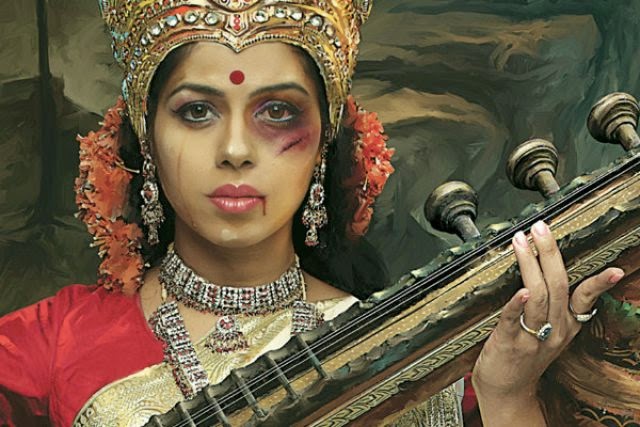Sexual Violence in India: What You Need to Know About This Epidemic
NDE - Riot police units were deployed on Saturday (March 7th) in the northeastern city of Dimapur, where the curfew remained in effect two days after the lynching of a man suspected of rape.
The 35-year-old suspect, accused of multiple rapes on a woman and arrested at the end of February, was lynched by the crowd that had taken him out of prison. Originally presented as an immigrant from Bangladesh, the man, actually from the Indian state of Assam and speaking Bengali, was beaten to death before being hanged at a clock tower.
This case, one of many, comes just two years after the rape of a medical student in a bus in the capital, and again recalls the alarming number of attacks on Indian women.
The Japanese edition of the Huffington Post asked Rituparna Chatterjee, deputy editor of the Indian Huffington Post, to tell us about the epidemic of sexual violence in his country.
Why are there so many cases of rape in India?
Because rape in our country is both a societal and a criminal problem. In our country, always governed by patriarchy, the subject is shameful and stigmatizing. As a result, victims of sexual assault are still reluctant to file a complaint for fear of violent reactions from those around them and the risk of ostracism.
The apparent upsurge in the number of rapes in India does not necessarily mean that attacks are increasing, but that they are more often the subject of a complaint and the media talk about it.
The democratization of the Internet and the arrival of news channels on a continuous basis have enabled millions of women to access information essential to their own security, with telephone support and campaigns sensitization. Women are now more likely to dare to file a complaint of rape.
After the rape in a meeting and the murder of a young woman on a bus in New Delhi in December 2012, the media began to take an interest in sexual assaults, including minor assaults. Social networks played an important role in the spread of these cases, and forced the authorities to take action (many police stations and police officers are active on Twitter, as well as various ministries).
What are the riskiest areas of India? North or South? East or West? The big cities or the countryside? Are there regional specificities?
According to the report released by the National Crime Records Bureau (NCRB), the majority of violence against women in 2013 - the most recent year for which we have government figures - Were held in New Delhi. To be more precise, assaults on women have increased over the last five years, from 9.2% of all crimes committed in 2009 to 11.2% in 2013.
Madhya Pradesh, in central India, holds the record of rape complaints, and West Bengal, in the east of the country, leads sexual slavery. Uttar Pradesh, to the north, which is the most populous, recorded the most kidnappings and assassinations related to the dowry.
This report shows that 70 per cent of violence against women has occurred in 53 very large cities. The administrative capital logically comes first, with 21.4% of cases. It is followed by the financial capital of the country, Mumbai (5.5%), and Bangalore, which many consider the Indian Silicon Valley (4.9%). Cities with a large immigrant population (on which we have little data) are generally the most affected by this phenomenon, as is the case in New Delhi.
In rural areas, the figures are generally underestimated.
The Indian government doubled the prison sentence for rapists to 20 years, with little result. Do tougher sentences really have an impact?
After the rape in New Delhi, India was forced to re-examine its colonial laws and expand its definition of rape. Higher penalties will only have a one-off effect. This will have little impact on the overhaul of public safety measures and on social change, which begins with education and outreach programs.
Delays in the initiation of prosecutions, interminable trials in which the victims are likely to be threatened and subjected to intimidation, apathy of the police and the victimization of those who have Survived, forced to undergo intrusive, humiliating and obsolete medical procedures ... all this only encourages repeat offenders.
Since the 2012 affair, voices have been raised to demand capital punishment in cases of rape, a proposal rejected by all those who believe that such a measure would push rapists to kill their victims so as not to be identical

Congratulations @safwenrekik! You have completed some achievement on Steemit and have been rewarded with new badge(s) :
Click on any badge to view your own Board of Honnor on SteemitBoard.
For more information about SteemitBoard, click here
If you no longer want to receive notifications, reply to this comment with the word
STOPBy upvoting this notification, you can help all Steemit users. Learn how here!